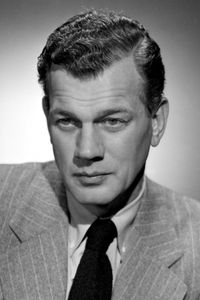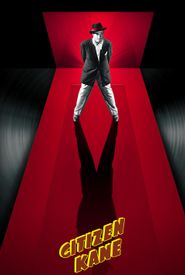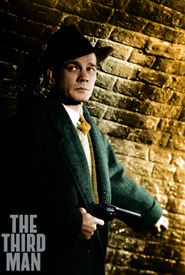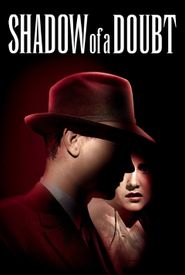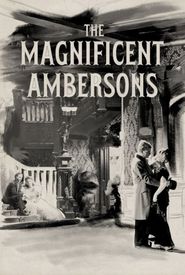Joseph Cheshire Cotten, Jr. was born in Petersburg, Virginia, into a well-to-do Southern family. He was the eldest of three sons born to Sally Whitworth (Willson) and Joseph Cheshire Cotten, Sr., an assistant postmaster.
Jo (as he was known) and his brothers Whit and Sam spent their summers at their aunt and uncle's home at Virginia Beach. And there and at an early age, he discovered a passion for storytelling, reciting, and performing acts for his family.
Cotten studied acting at the Hickman School of Expression in Washington, D.C. and worked as an advertising agent afterward. But by 1924, he tried to enter acting in New York. His money opportunities were limited to shipping clerk, and after a year of attempting stage work, he left with friends, heading for Miami.
There, he found a variety of jobs: lifeguard, salesman, a stint as entrepreneur - making and selling 'Tip Top Potato Salad' - but more significantly, drama critic for the Miami Herald. That evidently led to appearances in plays at the Miami Civic Theater.
Through a connection at the Miami Herald, he managed to land an assistant stage manager job in New York. In 1929, he was engaged for a season at the Copley Theatre in Boston, and there he was able to expand his acting experience, appearing in 30 plays in a wide variety of parts.
By 1930, he made his Broadway debut. In 1931, Cotten married Lenore LaMont (usually known as Kipp),a pianist, divorced with a four-year-old daughter.
To augment his income as an actor in the mid-30s, Cotten took on radio shows in addition to his theatre work. At one audition, he met an ambitious, budding actor/writer/director/producer with a mission to make his name - Orson Welles. Cotten was 10 years his senior, but the two found a kindred spirit in one another.
Their early co-acting attempts boded ill for employment formal acting vehicles. At a rehearsal for CBS radio, the two destroyed a scene taking place on a rubber tree plantation. One or the other was supposed to say the line: "Barrels and barrels of pith...." They could not overcome uncontrolled laughter at each attempt.
The director berated them as acting like 'chool-children' and 'unprofessional', and thereafter both were considered unreliable. Welles's ambition put that quickly behind them when he formed The Mercury Theatre Players.
Coming on board were later Hollywood stalwarts: Everett Sloane, Agnes Moorehead, Ruth Warrick, and Ray Collins. In 1937, Cotten starred in Welles's Mercury productions of "Julius Caesar" and "Shoemaker's Holiday". And he made his film debut in the Welles-directed short "Too Much Johnson" (1938),a comedy based on William Gillette's 1890 play.
The short was occasionally screened before or after Mercury productions, but never received an official release. Cotten returned to Broadway in 1939, starring as C.K. Dexter Haven in the original production of Philip Barry's "The Philadelphia Story".
The uproar over Welles's "War of the Worlds" radio broadcast was rewarded with an impressive contract from RKO Pictures. The two-picture deal promised full creative control for the young director, and Welles brought his Mercury players on-board in feature roles in what he chose to bring to the screen.
But after a year, nothing had germinated until Welles met with writer Herman J. Mankiewicz, resulting in the Citizen Kane (1941) idea - early 1940. The story of a slightly veiled William Randolph Hearst with Welles as Kane and Cotten, in his Hollywood debut, as his college friend turned confidant and theater critic, Jed Leland, would become film history, but at the time it caused little more than a ripple.
Hearst owned the majority of the country's press outlets and so forbade advertisements for the film. The film was nominated for nine Academy Awards in 1942 but was largely ignored by the Academy, only winning for Best Screenplay for Welles and Mankiewicz.
The following year, Cotten and Welles collaborated again in The Magnificent Ambersons (1942),acclaimed but again ignored at Oscar time, and the next year's Nazi thriller Journey Into Fear (1943). Cotten, along with some Welles ideas, wrote the screenplay.
Welles with his notorious overrunning of budgeting was duly dropped by RKO thereafter. Later in 1943, Cotten's exposure and acquaintance with young producer David O. Selznick resulted in a movie contract and the launching of his mainstream and very successful movie career as a romantic leading man.
Thereafter he appeared with some of the most leading of Hollywood leading ladies - a favorite being Jennifer Jones, Selznick's wife with the two of them being his most intimate
